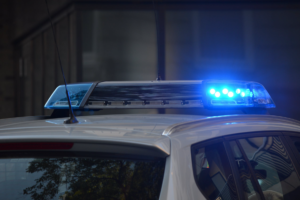Some of you might have seen a recent post on social media about a young man, 21 being stopped on the streets of Solihull. The headline: West Midlands Police: Solihull Covid Harassment Goes Viral.
The Facts
A 21-year-old man was detained in a police car when challenged on his way to work by the police.
Why?
He cited back to the police officer stop and search legislation in relation to COVID. It seems this young man, Nino Romano knew his stop and account rights even in relation to COVID. It is a stop and account opposed to a stop and search as they wanted information off Nino, not to search him. There was no suspicion of any offence.
When asked Nino gave details of where he was going. He refused to give his name, which is completely legal, but seemed to cause issue for the police officer involved.

The Law
The law states that you may be asked your name, what you are doing and where you are going, but importantly you do not have to stop or answer any questions. Not answering is not evidence for the police to search or arrest you. For more information on stop and search rights head to our previous blog.
So, we have established that Nino is safely within his legal rights, but he was still detained in a police car until he gave his name.
Stereotypes
This automatically struck me as unfair and discriminatory. Discriminatory towards a young man who was wearing a tracksuit. I automatically wondered if this would have been the case if he was instead a smartly dressed women with a child?
Nino stated that this is “how the police act to the younger generation” and “they targeted me because…I was wearing a tracksuit and coat.”
This behaviour is degrading and humiliating for those involved. This is evidently an issue of stereotypes attached to young men in tracksuits. Young men, like Nino, are wrongly targeted in the eyes of the police and members of the community.
Singling out the young isn’t only happening in relation to stop and search, currently the younger generation are also being blamed for the spread of Covid-19.
Reflective exercise: Check your stereotypes
- What do you assume when you see a young man in a tracksuit?
- Is this different if they are:
- person of colour or white?
- A man or women?
- Dressed up or dressed down?
- Hood up?
If you find yourself agreeing with these stereotypes you are not alone, as stop and search statistics also show that you are 9 times more likely to be stopped if you are black than white on average.
In the West Midlands, per 1000 people, 4 people stopped were white compared to 18 who were black. In Dorset police were 25 times more likely to stop you if you were black rather than white. Sadly, black stop and search rates were the highest in ALL metropolitan areas.
Race and ethnicity are not the only issues. You are disadvantaged as a male. In 2011 it was recorded that over 87% of people stopped and searched were male. In fact, 37% of stop and searches were of 18–24-year-olds.
Discrimination on many grounds; race, gender, age and class are a continuing problem. The institutional pattern of disproportionately high rates of stop and search powers exercised against members of black communities is consistent with research suggesting prejudice and selective enforcement based on stereotyping, something the Stephen Lawrence Inquiry attempted to overhaul.
There is still strong evidence to suggest that black communities, alongside young and working-class males are more likely to be stopped and searched for committing a suspected crime.
This suggests the continuity of disproportionate exercise of stop and search powers, as well as institutionally discriminatory factors which leads members of the black and/or working-class community into criminal activity, either out of choice or necessity.
Stop and search is invasive. People are unable to live a normal life when they are being held to unjustified close scrutiny. It is necessary for us all to check and tackle our biases, especially since they are so often unconscious.
We need to reflect on why we hold these biases and then find ways to debunk them. It is not fair for those affected to be unfairly discriminated against because of inherent social bias.
Sources
Guardian: 19 times more likely to be stopped and searched
Written by Abbie Bauckham
